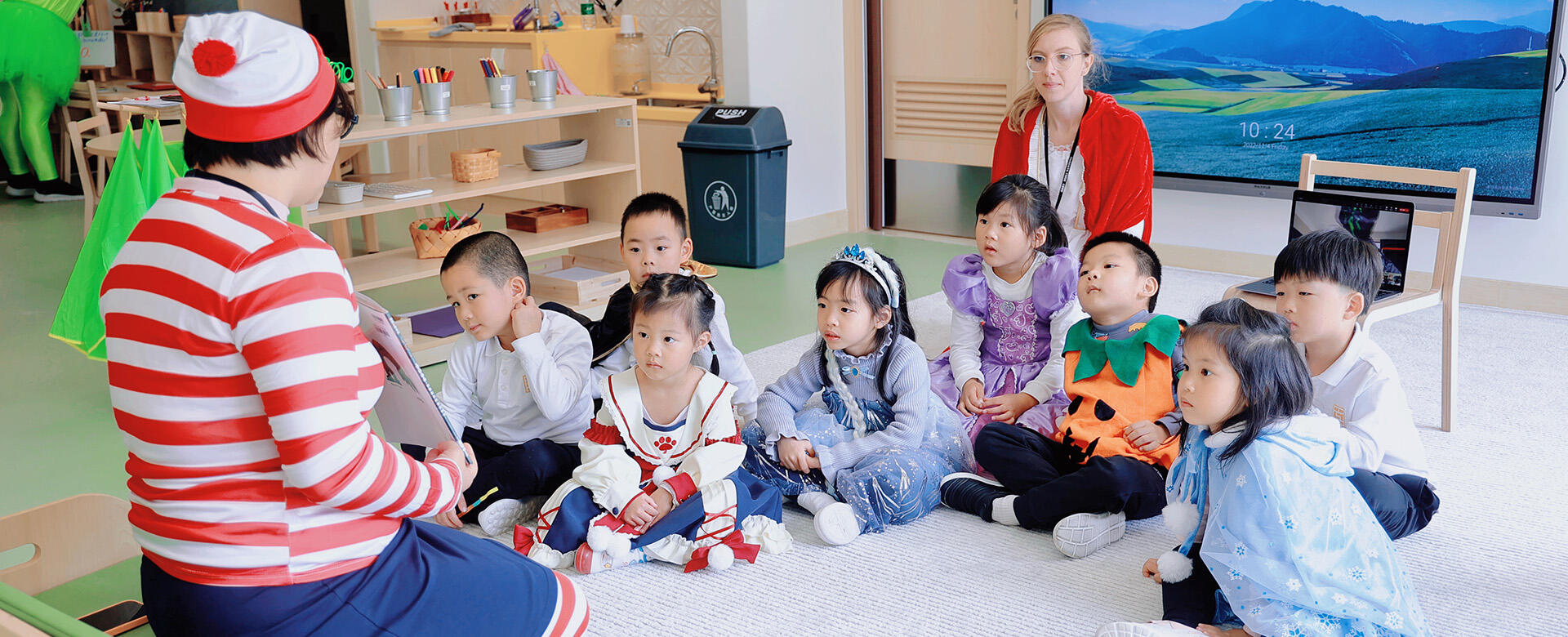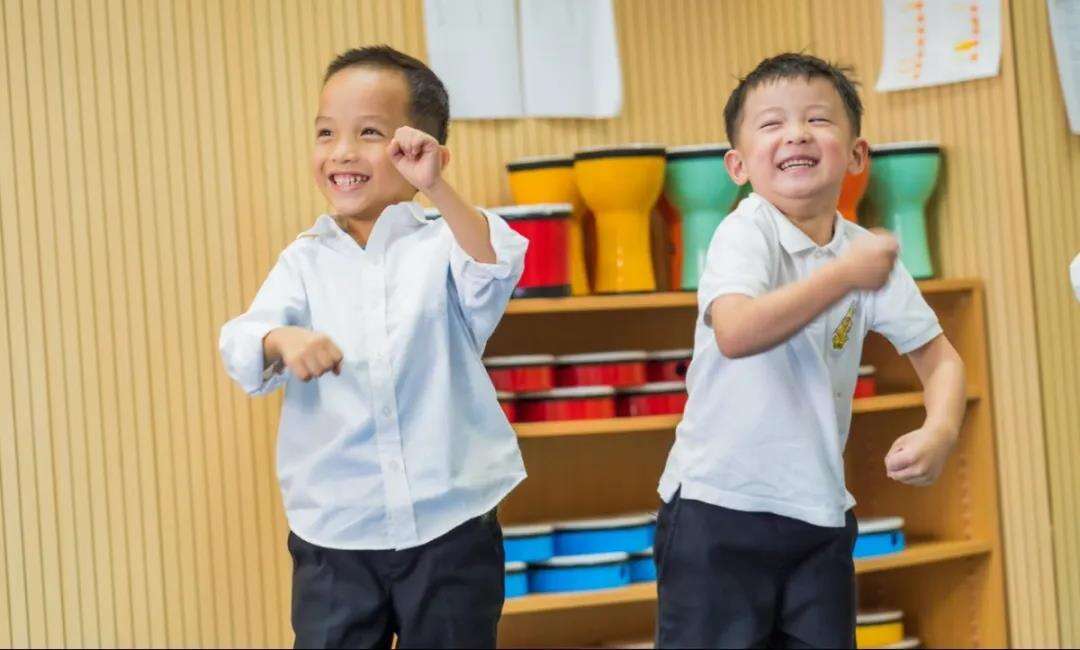
Our Chinese Co-Head of Nursery Ms. May Xue recently had a conversation with parents at an event called: 'What do you want your child to gain most from Nursery?' Most parents in attendance quickly answered this question as follows: "I want my child to be happy!"
We often associate happiness with wellbeing, but wellbeing is about much more than happiness.
01
What is Wellbeing?
Wellbeing is a psychological state. It represents how satisfied people are with their current life, and this further affects whether they can achieve and maintain an optimistic and cheerful state of mind.
According to Ferre Laevers, inventor of the Leuven Emotional Health Assessment, wellbeing is the key to confidence and deeper exploration for children. It helps children to develop healthy emotions, a sense of self-worth and resilience. Wellbeing is also a prerequisite for determining a child's level of engagement. Children with a high level of wellbeing and engagement are more easily satisfied, curious and capable of deep learning.

Children in a high state of wellbeing are like fish in water. They are comfortable in their environment, confident and eager to experiment and explore. Whereas children with low levels of wellbeing often appear frightened, anxious and dependent, impeding their ability to sustainably learn and explore their potential.
02
How we measure a
pupil's wellbeing?
With the aim of being better able to observe and assess our pupils’ wellbeing and involvement, Hiba Nursery introduced the Leuven Involvement Scale. The Leuven Scale consists of five indicators, in which 1 means very low and 5 means very high.
All pupils are assessed multiple times each year and the results are compared to a measurement framework for those in Early Years education to help teachers target measures to improve the wellbeing and engagement of children with low levels of achievement.
03
How we develop
a sense of wellbeing?
A Sense of Order
A sense of orderly, boundless freedom does not lead to a real and lasting sense of wellbeing. Developing respect for order and rules not only allows children to feel secure but also helps them to feel more autonomous and confident in changes in lives of their environment. The premise, of course, is that rules and order are established on the basis that children and adults have the same rights. Therefore, through the "Children's Parliament", we learn about each other's needs, discuss the need for a rule and how it can be amended and review the challenges and rewards of the jointly established rules in concrete practice.
It is important to note that adults also must respect the rules in this process, rather than thinking of themselves as 'the rules'.
A Sense of Belonging
A sense of belonging is the strongest psychological motivation for children as their biological nature collides with social culture. It is a basic need for them. A day in Nursery, an environment rich with opportunities for exploration, teacher-pupil interaction and activity support, builds a sense of belonging.
For children who are new to a school, incorporating familiar elements in their new environment, such as family photos, favorite dolls, familiar music/illustrated books, etc. help children settle into their new environment more quickly. Therefore, before the start of the school year, parents are invited to fill in an 'About Me' form to help us get to know their child and create a more familiar and welcoming environment for them.
Family Environment
It is not enough to develop a pupil's sense of wellbeing in the Nursery; parents that are present are a source of wellbeing for pupils as well.
Parents can ask themselves the following questions:
We encourage our parents to play a game named 'the three good things'. This entails sharing with your child each evening what good things happened that day and recording them. These can be as big or as small as finally learning to swim, having ice cream or doing a good deed. And it is not only the child who shares with you, but you are invited to share your three good things with your child too.
Wellbeing is a lifelong necessity for our pupils and a prerequisite for active and sustained learning. A pupil with a high sense of wellbeing has a high level of concentration and a long-lasting learning capacity, which is the cornerstone of a child's healthy growth and fulfilling life. By building and protecting your child’s wellbeing from early on, they will be in a much more advantageous position at the starting line.
Contact Us
Contacts:Sammi Gu
Hotline:0513-8919 0666
Telephone:177 1485 5368
Email:admissions.hsn@huilieducation.cn
Website:nantong.huilieducation.cn
Founding Office Address:
China-Austria Eco-Park, Su-Xi-Tong Science and Technology Industrial Park, Nantong
School Address:
66 Haide Road, Su-Xi-Tong Science and Technology Industrial Park, Nantong, Jiangsu